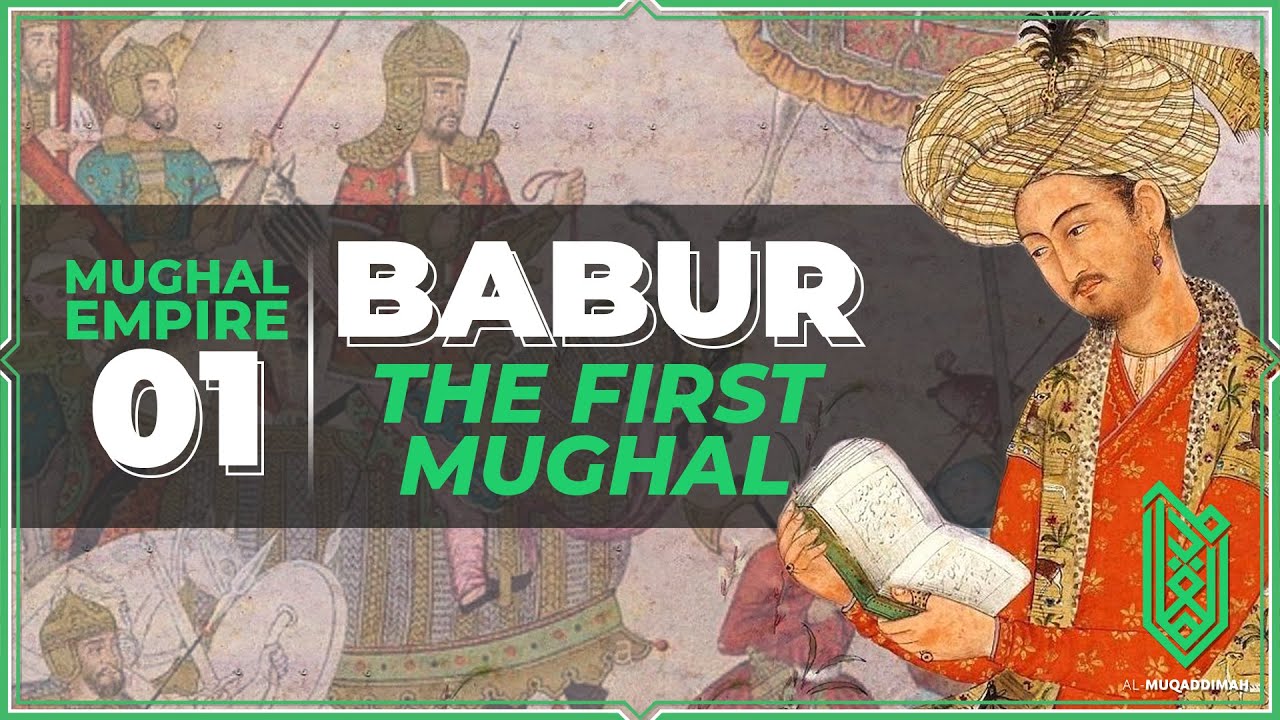Mughal rule in India | 1450 - Present | World History | Khan Academy
Summary
TLDRThe video explores the rise and fall of the Mughal Empire, beginning with Babur, a descendant of Timur and Genghis Khan, who conquered northern India in 1526. It details the reigns of key rulers, including Akbar, known for his pluralism and cultural unification efforts, and Aurangzeb, who expanded the empire but was known for his intolerance. The empire peaked in territorial expansion but faced a decline in the 18th century due to weak rulers and invasions, leading to British dominance in India.
Takeaways
- 🌍 Timur's Persia and Central Asia fragmented by the 15th century, leading to several independent kingdoms.
- 👑 Babur, Timur's great-grandson, took the throne of Fergana at age 12 in 1483 and struggled to maintain control over territories.
- 🔫 Babur used cannons to defeat Ibrahim Lodi in 1526, marking the rise of the Mughal Empire in northern India.
- 🏰 The Mughal Empire brought significant Persian cultural influence, as Persian was the language of the court.
- 🌱 Akbar, Babur's grandson, expanded the empire, emphasized religious tolerance, and attempted to unify India through cultural pluralism.
- 🙏 Akbar introduced the Din-i-Ilahi, a syncretic religion blending elements from various faiths, including Hinduism and Jainism.
- 🎨 Shah Jahan's reign marked the golden age of Mughal architecture, most famously commissioning the Taj Mahal.
- 📚 Jahangir, Akbar's son, continued a focus on the arts and sciences but became controversial for executing Sikh leader Guru Arjan.
- 🛑 Aurangzeb, a strong but authoritarian ruler, expanded the empire significantly but was less tolerant of other religions.
- 📉 After Aurangzeb's death in 1707, the Mughal Empire declined, with the British gaining influence in the region by the 18th century.
Q & A
Who was Babur, and what was his significance in the history of the Moghul Empire?
-Babur was a great-grandson of Timur, born in 1483 in Andijan (now part of Uzbekistan). He founded the Moghul Empire in India after defeating Ibrahim Lodi of the Delhi Sultanate in 1526, utilizing cannons effectively in battle. His conquest marked the beginning of Moghul rule in northern India.
What challenges did Babur face during his early reign?
-Babur faced multiple challenges, including difficulties consolidating control over Samarkand and Fergana, losing both territories several times. Eventually, he shifted his focus away from Central Asia and toward India, where he established the Moghul Empire.
What role did Persian culture and language play in Babur's court?
-Persian was the official language of Babur's court, reflecting his Turko-Mongolian lineage and connections to Persian influence. This helped shape the Persian influence on North Indian culture during the Moghul era.
How did Akbar differ from earlier Moghul rulers in his approach to governance and religion?
-Akbar was known for his pluralistic approach, attempting to unify India culturally. He invited religious scholars from various traditions and tried to merge religious ideas, even creating the Din-i-Illahi, a religion that combined elements from Hinduism, Jainism, and Islam.
What were some of Akbar's notable reforms related to religious tolerance?
-Akbar is famous for his tolerance towards other religions. He banned cow slaughter, became a vegetarian, and held discussions with scholars of different faiths. His reign was marked by efforts to bridge the gap between Muslim and non-Muslim populations in India.
What was the significance of Shah Jahan's reign, particularly in terms of architecture?
-Shah Jahan's reign is known as the golden age of Moghul architecture. His most famous architectural achievement is the Taj Mahal, built as a mausoleum for his wife Mumtaz Mahal in Agra in the 1630s. His reign saw the construction of several other magnificent buildings as well.
How did Aurangzeb's policies differ from his predecessors, and what was the impact on the Moghul Empire?
-Aurangzeb was known for being less tolerant than previous Moghul rulers. His authoritarian rule expanded the empire to its largest extent, but his strict enforcement of Islamic laws and intolerance towards other religions created unrest. His death in 1707 marked the beginning of the Moghul Empire's decline.
What caused the decline of the Moghul Empire in the 18th century?
-After Aurangzeb's death in 1707, the Moghul Empire was ruled by increasingly weaker emperors. The empire's power and territory dwindled, and Delhi was sacked by Nadir Shah. The British and other local Indian rulers gradually chipped away at Moghul territories throughout the 18th century.
Why is Jahangir’s reign considered controversial despite his tolerance and interest in arts and sciences?
-Jahangir is controversial because, despite being tolerant and continuing Akbar's patronage of the arts and sciences, he ordered the execution of Guru Arjan, the fifth Sikh Guru. Some believe this was due to political insecurity, while others argue it was due to Guru Arjan's growing influence.
What was the significance of Humayun's exile and later return to power?
-Humayun was dethroned by the Pashtun Suri dynasty but regained power with the help of the Safavids after a period of exile. His return was significant because it reestablished Moghul rule, though his reign ended abruptly due to his accidental death, leading to Akbar’s rise to power.
Outlines

هذا القسم متوفر فقط للمشتركين. يرجى الترقية للوصول إلى هذه الميزة.
قم بالترقية الآنMindmap

هذا القسم متوفر فقط للمشتركين. يرجى الترقية للوصول إلى هذه الميزة.
قم بالترقية الآنKeywords

هذا القسم متوفر فقط للمشتركين. يرجى الترقية للوصول إلى هذه الميزة.
قم بالترقية الآنHighlights

هذا القسم متوفر فقط للمشتركين. يرجى الترقية للوصول إلى هذه الميزة.
قم بالترقية الآنTranscripts

هذا القسم متوفر فقط للمشتركين. يرجى الترقية للوصول إلى هذه الميزة.
قم بالترقية الآنتصفح المزيد من مقاطع الفيديو ذات الصلة

SEJARAH BERDIRINYA DAULAH MUGHAL DI INDIA

DAULAH MUGHAL!! Sejarah Peradaban Daulah Islam Di India

Bagian 1 ~ Peradaban Islam Pada Masa Daulah Mughal Di India

Ottoman, Safavid and Mughal Empires | World History | Khan Academy

Babur, the Founder of the Mughal Empire | 1483CE - 1530CE | Al Muqaddimah

The Mongols
5.0 / 5 (0 votes)
